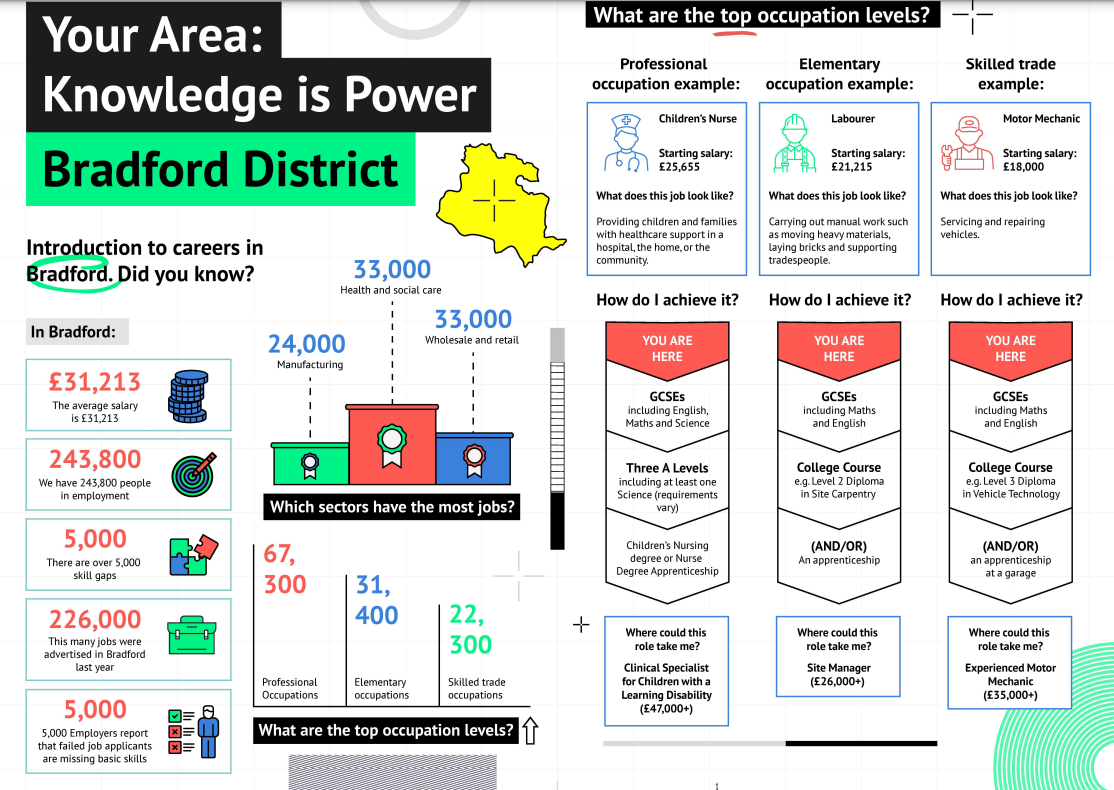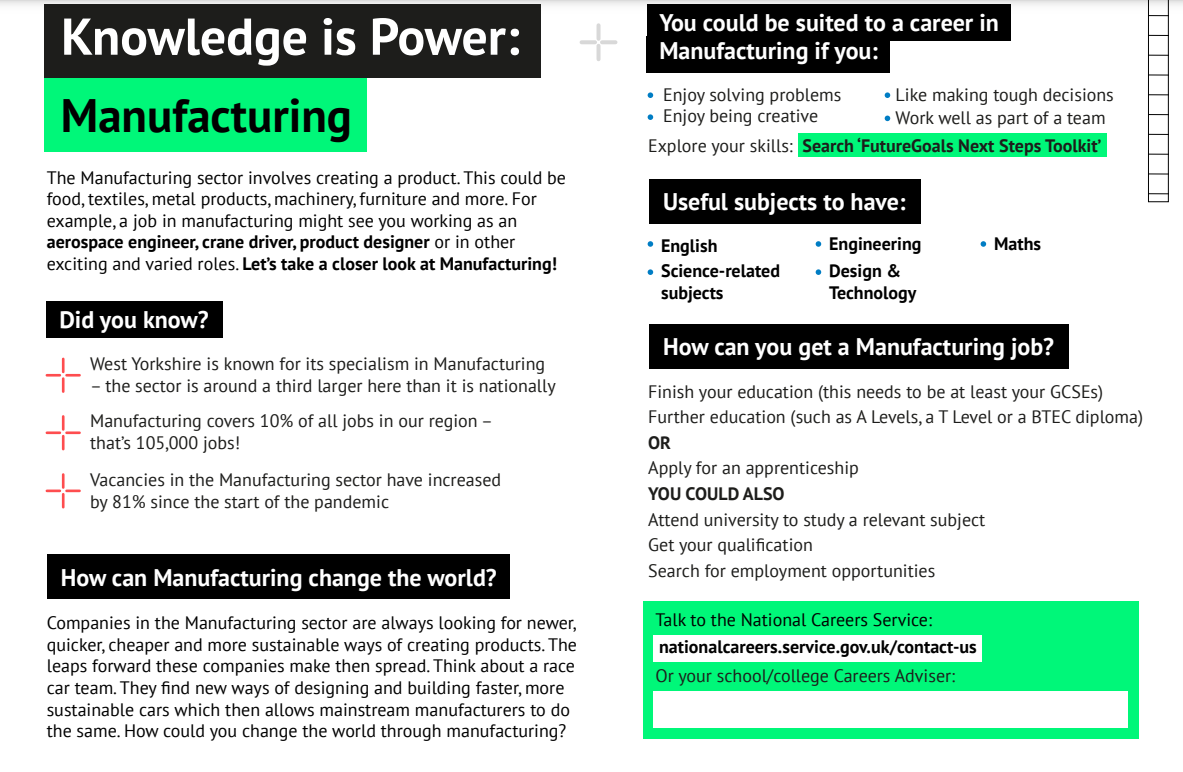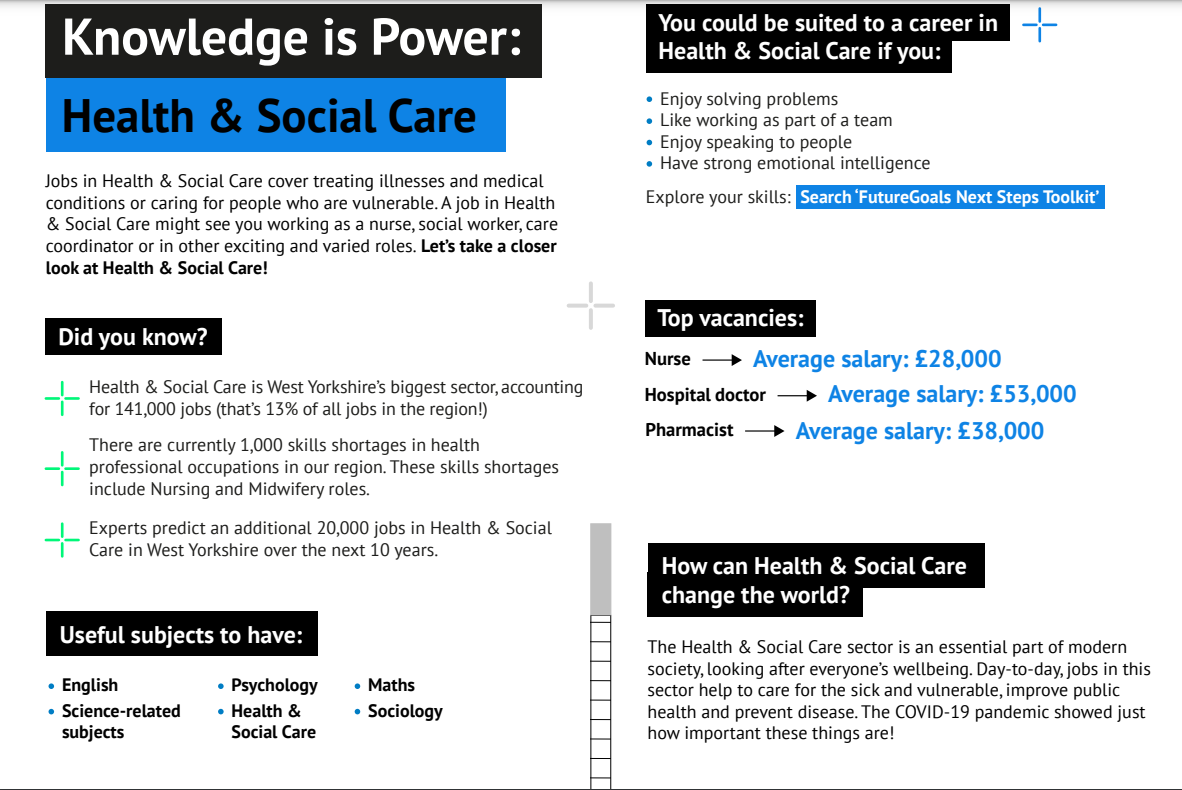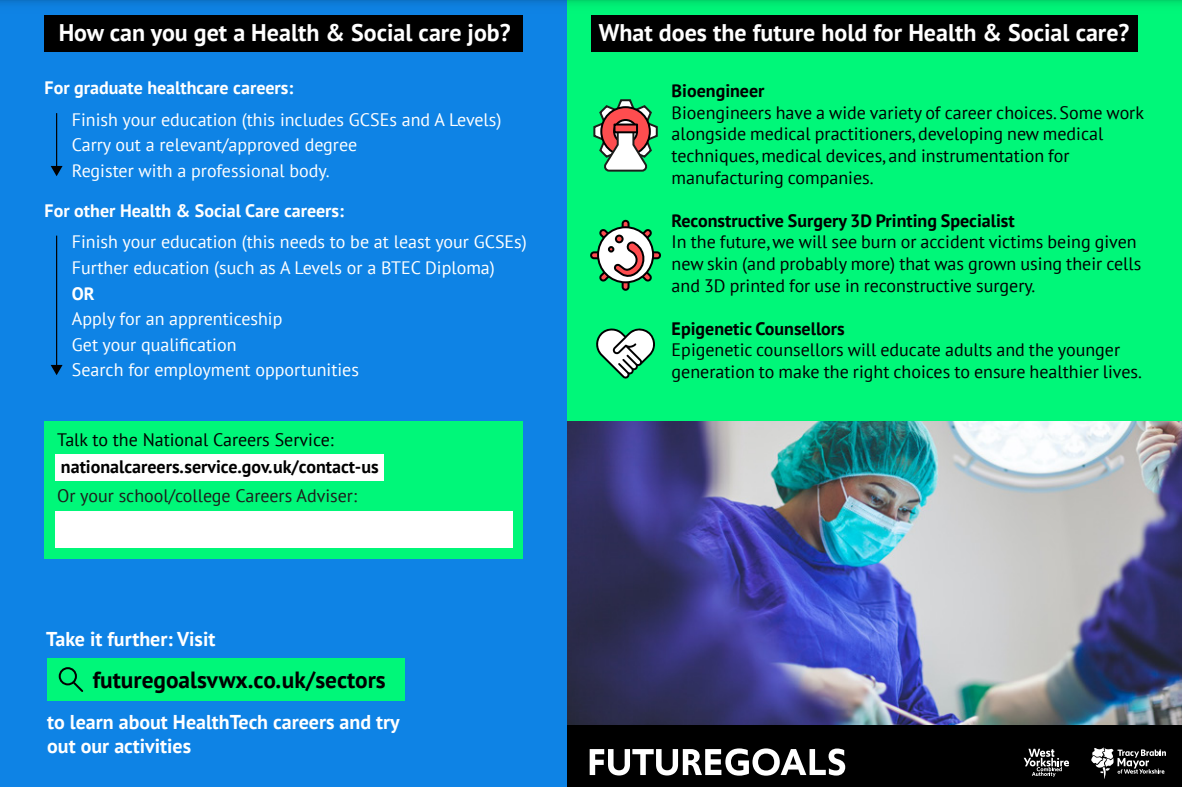Support and Resources
What Pathways are available? Find out more!
What are my options?
Apprenticeships
An apprenticeship is a paid job where the employee learns and gains valuable experience.
Alongside on-the-job training, apprentices spend at least 20% of their working hours completing classroom-based learning with a college or training provider, which will then lead to a nationally recognised qualification.
An apprenticeship includes:
-
Paid employment with holiday leave
-
Hands-on experience in a sector/role of interest
-
At least 20% off-the-job training
-
Formal assessment/exam at the end of your training which leads to a nationally recognised qualification
You can only apply for an apprenticeship if you are over the age of 16 and are not in full-time education. You may want to apply for an apprenticeship if you are looking for a career change, looking to upskill your current role, or are early on in your career.
Employment
Employment is where you are employed by a company to work for them, where you will then be paid by them. You will usually have an employment contract that sets out the terms and conditions of what it is that you are expected to do, for example, job role, pay, holiday entitlement.
There are a few different types of employment, such as Self-Employed, Part-Time, and Casual Worker, but the most traditional form of employment is Full-Time Employment. This is where the company would set a specific number of hours for you to work each week (usually 35-40) and then you would receive a monthly salary for this. Every company and place of work will have different bonuses and holiday entitlement.
Internships
An internship is a period of work experience lasting for a fixed period of time anywhere between a week and 12 months, sometimes it can be longer. You do get paid for an internship, but can only apply for an internship over the age of 16. Therefore, they are typically undertaken by students who have just left school or university graduates looking to gain relevant skills.
Securing an internship can be difficult, as they are quite competitive. Therefore, when applying for an apprenticeship, it's really important that you have a real interest in the sector so that you can build and develop your skills and abilities.
Stay in Education
Further and higher education are an option. After high school, you can go to the 6th Form or college. Following that, you can go to university.
Vocational Courses
A vocational course is a training programme that focusses more on practical work, rather than traditional academic exams. Someone who is more suited to doing practical assessments and coursework assignments rather than exams may be more suited for vocational courses.
There are different levels of Vocational Courses. The level you get onto is based on your GCSE results. For example:
-
Entry Level and Level 1 (Equivalent to GCSEs at grades 3/2/1/U)
-
Level 2 (Equivalent to four or five GCSEs at Grade 9-3)
-
Level 3 (Equivalent to two or three A-Levels or GCSEs at Grade 9-4)
A Levels
Advanced-level qualifications (known as A-Levels) are subject-based qualifications that can lead to university, further study, training or employment. You can normally study three or more A-Levels over two years. They are usually assessed by a series of examinations.
To study A-Levels, you normally need:
-
At least five GCSEs at grades 9 to 4
-
At least grade 6 in the specific subject(s) you want to study. *This is not essential but required as your school may not offer this subject in your GCSE subjects
However, the specific requirements needed to study A-levels will vary across schools and colleges. It's important to check what you need with the school or college you are looking to study at after Year 11.
T Levels
T Levels are a two-year qualification for 16-19 year olds designed in collaboration with employers. Each T Level is equivalent to 3 A Levels, with the aim to support the young person to develop their skills, knowledge and to thrive in the workplace.
T Levels offer a mixture of classroom learning and ‘on-the-job experience’ through industry placement.
You will need GCSE grades 9-4 in all subjects to be able to get into a T-Level.
Where can I find out more?
Helpful Links:
- targetcareers.co.uk
- careeralchemy.co.uk
- amazingapprenticeships.com
- https://www.apprenticeships.gov.uk/ - Search for apprenticeships in a specific sector and in your area.
- https://www.gov.uk/employment-rights-for-interns - Internship Information.
- www.indeed.co.uk – Full-time and part-time employment vacancies.
- https://www.careerpilot.org.uk/information/your-choices-at-16/help-with-choosing-your-post-16-options - Information to help with post-16 options and decision-making.
- https://www.ucas.com/careers-quiz - Career Quiz.
Unifrog 🐸
The destination for everything in my career!
Unifrog helps you get on the right path for your chosen career.
It’s available for all our students, jump in or find out more below 👇
unifrog.org
Students: How do I get on?
You’ll get your login direct to your school email address.
Get started
If you’re stuck, ask your form tutor or get in touch with Mrs Skinner, our Careers Leader
Parents: How do I get on?
Check how your child is progressing! Create a parent account.
You’ll need our code, it’s: parentscoopgrange
Get in touch with your child’s form tutor if you need any support.
What is it?
Unifrog helps you pick your next steps after school.
In one place, see every:
Undergraduate university course,
Apprenticeship,
College course,
other opportunities, like School Leaver Programmes and more!
Use Unifrog to:
Write personal statements,
Applications,
CVs
And then use these to apply for opportunities.
Labour Market Information
"LMI" typically stands for "Labor Market Information." It refers to data and insights about the job market, including information about employment trends, job availability, required skills, salary ranges, and geographic demand.
For students, LMI is incredibly useful because it helps them make informed decisions about their education and career paths. Here's how:
-
Career Planning: LMI provides valuable insights into which industries and occupations are growing or declining, allowing students to align their interests and skills with promising career paths.
-
Educational Choices: By understanding which skills and qualifications are in demand, students can make better decisions about what to study and which courses or programs to pursue to increase their employability.
-
Salary Expectations: LMI offers data on salary ranges for various occupations, helping students set realistic expectations for their future earnings and negotiate salaries effectively.
-
Geographic Considerations: LMI can highlight regional differences in job markets, allowing students to explore opportunities in areas where their chosen field is thriving.
-
Long-Term Planning: With insights into projected job growth and industry trends, students can make more strategic decisions about their long-term career goals and professional development.
Overall, LMI empowers students to make informed choices about their education and career paths, ultimately increasing their chances of success in the workforce.
See the most up-to-date LMI for Bradford:


Careers in Construction


Careers in Manufacturing


Careers in Health and Social Care


The National Careers Service is packed full of information on careers and paths.
National Careers Service
Leeds City Region Enterprise Partnership – labour market information Bradford, Leeds and other places in West Yorkshire.
Labour Market info
What is Labour Market Information and more information?
Success at School Blog
Further and Higher Education
Looking at Further or Higher Education? Check out these super resources
UCAS Hub
No matter your choice, UCAS Hub is the perfect place to help you get organised with your next steps:
University explained and advice
FutureGoals
Finance Info – Gov.uk
Complete University Guide
Compare universities
Apprenticeships
Looking at apprenticeships? Check out these super resources
In an apprenticeship you’re employed to do a real job, while studying for a qualification.
Apprenticeships explained and advice
Find and apply for an apprenticeship
UCAS Hub
No matter your choice, UCAS Hub is the perfect place to help you get organised with your next steps: